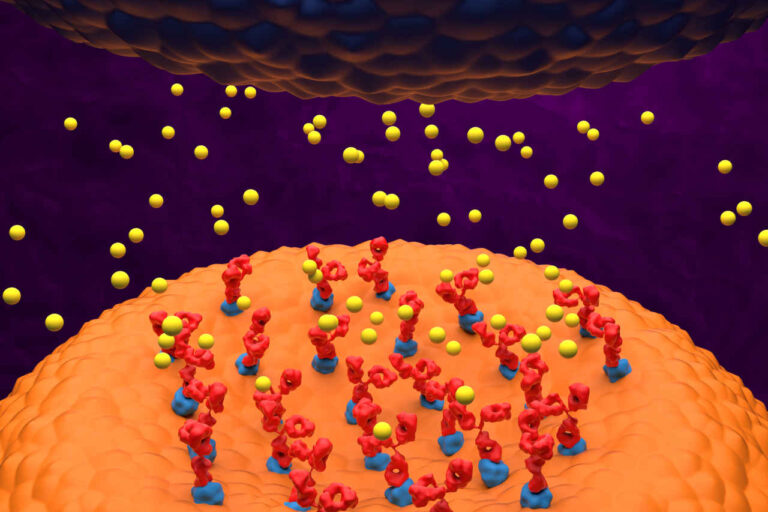
Myasthenia gravis (MG) is a rare long-term autoimmune disease that causes voluntary muscle weakness. In MG, your body creates antibodies that disrupt the communication between your nerves and muscles. It can affect any muscle group. However, a specific form known as bulbar myasthenia gravis targets the muscles involved in speaking, swallowing, and chewing. This article will explore bulbar myasthenia gravis, its symptoms, treatment, and management.
Get Financial Assistance
Understanding Myasthenia Gravis
Myasthenia gravis is a rare disease that causes muscle weakness. It happens when your body’s immune system mistakenly attacks the connection between your nerves and muscles. This attack disrupts the signal that helps muscles move, causing muscle weakness. This weakness gets worse during physical activity but improves after resting. MG often attacks muscles that control eye movement, facial expression, breathing, and swallowing [1].
There are three main types of myasthenia gravis (MG): autoimmune, neonatal, and congenital. Autoimmune MG has two subtypes: generalized and ocular. In ocular MG, only the muscles that move the eyes and the eyelids are affected. It can cause symptoms like slowed eye movements and double vision. On the other hand, generalized MG affects several areas of the body. It usually affects the muscles of the arms, legs, and chest. For those diagnosed with ocular MG, it is possible that it may progress to generalized MG over time [2].
What Is Bulbar Myasthenia Gravis?
Bulbar myasthenia gravis is a subtype of generalized MG where the bulbar muscles are affected. Bulbar muscles are a group of muscles located in the head and neck. They are responsible for functions such as swallowing, speaking, and chewing. Bulbar MG can significantly impact a person’s ability to speak, eat, and hold up their head, leading to problems in daily life.
About 15% of people with myasthenia gravis (MG) initially experience bulbar symptoms (difficulty speaking, eating, etc.). However, it is rare for these symptoms to appear alone. Usually, people who have bulbar symptoms also experience other typical symptoms of MG [3].
Symptoms and Diagnosis
Bulbar myasthenia gravis involves the following symptoms related to the bulbar muscles [4]:
- Dysphagia: Bulbar MG can cause difficulty swallowing (dysphagia). Also, it can cause foods or liquids to accidentally go into the lungs, leading to lung infection.
- Dysarthria: Your speech can get slurred or unclear due to weakness in the muscles controlling speech.
- Facial Weakness: Bulbar MG can reduce your ability to make facial expressions. This can affect your communication.
For the diagnosis of bulbar myasthenia gravis, doctors use different check-ups and tests. First, they might start with a physical exam to see how strong the muscles are. If your doctor suspects MG, then they might order blood tests to look for specific antibodies. Commonly, patients with MG tend to have high levels of acetylcholine receptor antibodies. Additionally, your doctor might suggest electrodiagnostic tests such as an electromyograph (EMG). These tests show how well the nerves and muscles are working together. Lastly, if your doctor confirms that you have MG, then they might suggest a CT scan, chest X-rays, or MRI to examine your thymus. This is because a tumor in the thymus is found in about 15% of MG patients [5].
Speak to a Specialist
About Copay AssistanceTreatment of Bulbar Myasthenia Gravis

The symptoms of bulbar myasthenia gravis differ from patient to patient. Some may only experience issues with the bulbar muscles, while others might also have other symptoms. Therefore, the treatment plan is generally tailored to your specific condition. The treatment plan usually includes:
- Medications: Your doctor may prescribe medications like pyridostigmine, which can help improve muscle strength. Additionally, your doctor may prescribe drugs like prednisone or azathioprine to lower your immune system’s attack on your body [6].
- Thymectomy: If there is a tumor or abnormality in your thymus gland, then surgical removal of your thymus gland can improve your symptoms [6].
- Intravenous Immunoglobulin (IVIG): IVIG involves injecting a type of antibody that can help reduce the immune system’s production of harmful antibodies [7].
- Speech Therapy: You may consider speech therapy, which can help you manage problems with speech and swallowing.
- Nutritional Support: If you have severe swallowing difficulties, your doctor may use methods like tube feeding to ensure proper nutrition.
Please note that bulbar myasthenia gravis patients have to maintain a healthy lifestyle. They should avoid stress, tension, smoking, and other harmful things. Also, regular check-ups with doctors are essential.
The Bottom Line
Bulbar myasthenia gravis is a challenging subtype of myasthenia gravis. It affects muscles involved in speaking, swallowing, and chewing and creates great difficulties in an individual’s day-to-day life. However, with early diagnosis and a customized treatment plan, an individual with bulbar MG can lead a fulfilling life.
REFERENCES:
- Keesey, J. C. (2004). Clinical evaluation and management of myasthenia gravis. Muscle & Nerve, 29(4), 484–505. https://doi.org/10.1002/mus.20030
- Myasthenia gravis (MG) – diseases | Muscular Dystrophy Association. (2024, June 3). Muscular Dystrophy Association. https://www.mda.org/disease/myasthenia-gravis
- Myasthenia gravis with isolated bulbar syndrome on presentation, two case reports – journal of the neurological sciences. (n.d.-a). https://www.jns-journal.com/article/S0022-510X(19)31634-X/fulltext
- Rodolico, C., Bonanno, C., Toscano, A., & Vita, G. (2020). MUSK-Associated Myasthenia Gravis: Clinical features and management. Frontiers in Neurology, 11. https://doi.org/10.3389/fneur.2020.00660
- Diagnosis – Myasthenia gravis (MG) – Diseases | Muscular Dystrophy Association. (2021, April 28). Muscular Dystrophy Association. https://www.mda.org/disease/myasthenia-gravis/diagnosis
- Farrugia, M. E., & Goodfellow, J. A. (2020). A Practical Approach to Managing Patients with Myasthenia Gravis—Opinions and a review of the literature. Frontiers in Neurology, 11. https://doi.org/10.3389/fneur.2020.00604
- Medical Management – Myasthenia gravis (MG) – diseases | Muscular Dystrophy Association. (2024, April 26). Muscular Dystrophy Association. https://www.mda.org/disease/myasthenia-gravis/medical-management













